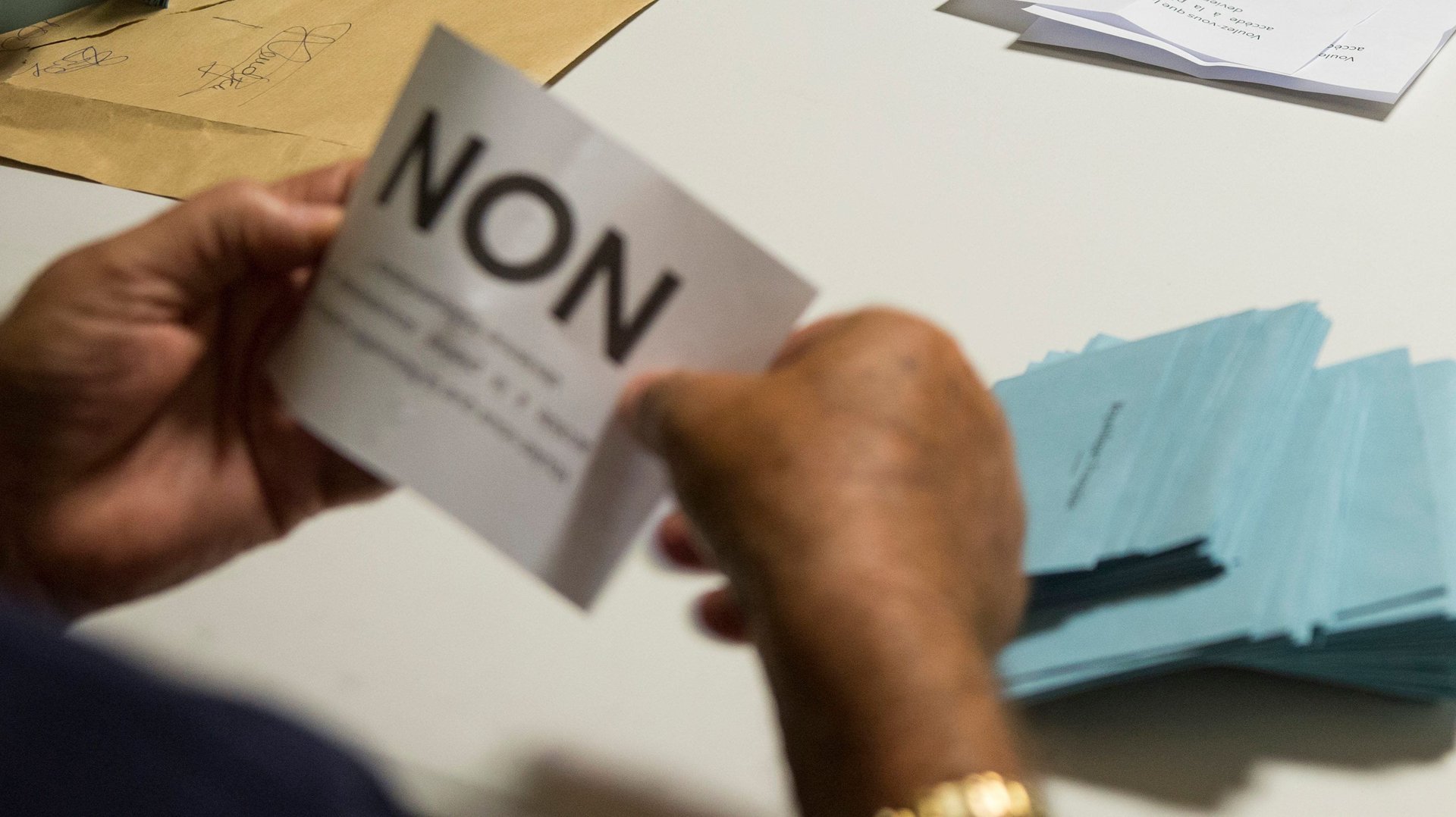A French territory flirted with independence today
It has been 38 years since a French territory became independent, creating the Republic of Vanuatu in the South Pacific. This weekend, it came close to happening again, this time in neighboring New Caledonia.


It has been 38 years since a French territory became independent, creating the Republic of Vanuatu in the South Pacific. This weekend, it came close to happening again, this time in neighboring New Caledonia.
The citizens of that archipelago, 750 miles (1,207 km) east of Australia, went to the polls on Nov. 4 to answer the question: “Do you want New Caledonia to gain full sovereignty and become independent?”
The pro-independence team lost, but by a tighter margin than some polls predicted. Results showed 56.4% of voters backed remaining part of France, and 43.6% supported leaving. About 81% of the 175,000 people who were eligible to vote cast a ballot.
For now, Overseas France, including its territories off the coasts of North and South America, in the Indian Ocean, and in Antartica, remains intact.
A troubled history
New Caledonia is valuable to France for economic and political reasons. Formerly a penal colony (until the end of the 19th century), its location is “an asset” to the French, the BBC explains, and the territory claims 25% of the world’s supply of nickel, a metal used in the making of electronics.
Kanaks, an indigenous people, comprise nearly 40% of the population. During the 1980s, some pro-independent Kanaks launched a campaign to break free from France. That conflict eventually led to the death of 19 Kanaks and four French soldiers in a shocking hostage-taking of French police officers. Rocked by the bloodshed, the warring sides forged a peace agreement in 1988 that promised the issue would be revisited in 20 years.
Although some Kanaks are said to support France, the indigenous group had suffered under French control. They were “forced to live on reserves in remote areas, pay specific taxes and do mandatory work for very low wages,” AP News reports. Some places were off-limits to the Kanaks, who also had to honor curfews.
In 1946, New Caledonia gained autonomy, though Paris supports its economy with annual subsidies of €1.3 billion ($1.5 billion). Ethnically, European people make up nearly 30% of the population, and their allegiance to France remains strong.
During a visit to the territory last spring, French president Emmanuel Macron said that his nation would be “less beautiful without New Caledonia.”
After today’s vote, he swooned, “I have to tell you how proud I am that we have finally passed this historic step together.”